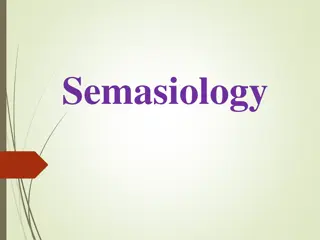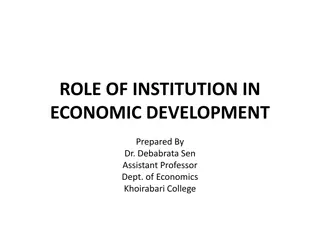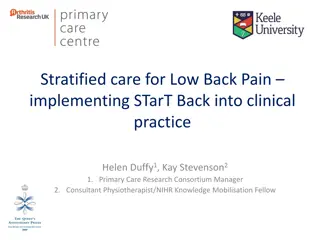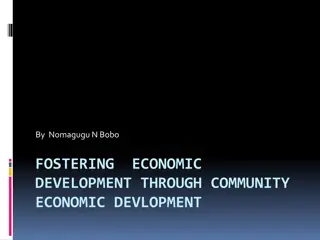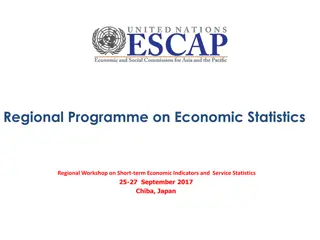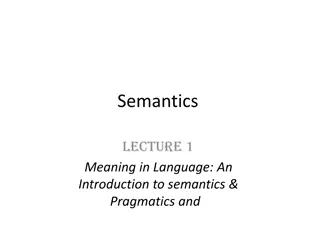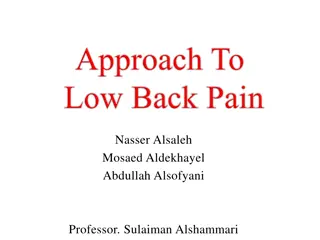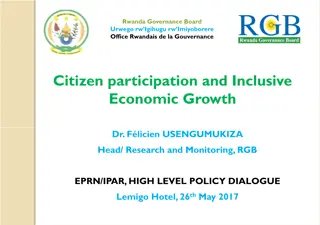Meaning of Back to Basics for Economic Development
In this seminar, the focus is on the essential principles municipalities must fulfill to meet residents' basic needs for economic growth through tourism. The significance of tourism in global economies, the components of tourism, and the mandate for tourism in RSA are discussed, emphasizing the pivotal role of local government in driving tourism and LED.
Download Presentation

Please find below an Image/Link to download the presentation.
The content on the website is provided AS IS for your information and personal use only. It may not be sold, licensed, or shared on other websites without obtaining consent from the author.If you encounter any issues during the download, it is possible that the publisher has removed the file from their server.
You are allowed to download the files provided on this website for personal or commercial use, subject to the condition that they are used lawfully. All files are the property of their respective owners.
The content on the website is provided AS IS for your information and personal use only. It may not be sold, licensed, or shared on other websites without obtaining consent from the author.
E N D
Presentation Transcript
COGTA & GDED LED SEMINAR MEANING OF BACK TO BASICS FOR ECONOMIC DEVELOPMENT 12 MARCH 2015 1
contents Tourism, a compelling economic sector The basic science of tourism Tourism mandate regulatory and policy frameworks Tourism and Back to Basics concept. Local government the Nexus for tourism & LED 2
tourism, a compelling economic sector Global economies move away from extractive industries to knowledge based and service oriented sectors Many emerging economies chose tourism and hospitality to drive growth RSA was amongst them as way back as 1994 All RSA policies identify tourism as a priority sector for employment and growth Over 1 billion of the 7 bn world population travelled internationally in 2013 RSA internal arrivals have passed 10 ml per year in 2010 over 200% from 1994 3
basic science of tourism Four cooperating components: 1. The Tourist willingness to travel 2. The tourist attraction/destination the attractive magnet 3. The experience Authentic, warm & enjoyable 4. Intermediaries affordable retail packages 4
mandate for tourism in RSA Tourism Act of 2003 replaced in 2014 ACT 1994 White paper- National Tourism Sector Strategy 1. Sets strategic framework 2. Defines roles and responsibilities 3. Outlines Institutional framework & IGR 5
back to basic principles Implies that municipalities core responsibility is to ensure basic needs of residents are met by providing clean drinking water, sanitation, electricity, waste removal, road maintenance, shelter and other services. 6
local government; the Nexus for tourism & LED The Tourist Back to Basics Attraction/Desti nation The Experience Intermediaries 7
Policy, Legislative and Strategic Framework The South African Constitution identifies tourism as a Schedule 4 Part A functional area of concurrent national and provincial legislative competence; Tourism White Paper of 1996 outlines the roles and responsibilities of the three spheres of government with regards to tourism development and promotion in South Africa; and 8
Policy, Legislative and Strategic Framework According to the Municipal Structures Act, a municipality has powers and functions assigned to it in terms of section 156 of the Constitution including the responsibility to promote local tourism. Most importantly, section 84 (1) (m) states that a District Municipality has powers to promote the development and promotion of local tourism. (N.B. Schedule 4 Part B of the Constitution also lists local tourism as one of the functional areas of local government and not just district municipalities, hence such mandate also applies to local municipality); and The Intergovernmental Relations Framework Act of 2005 promotes ongoing cooperation between the various spheres of government. 9
Tourism Act XX of 2014 Objectives of the Tourism Act are-: to promote responsible tourism for the benefit of South Africa and for the enjoyment of all its citizens and foreign visitors; to provide for the effective domestic and international marketing of South Africa as a tourist destination; to promote quality tourism products and services; to promote for growth and development of the tourism sector; and to enhance co-operation and co-ordination between all spheres of government in developing and managing tourism 10



